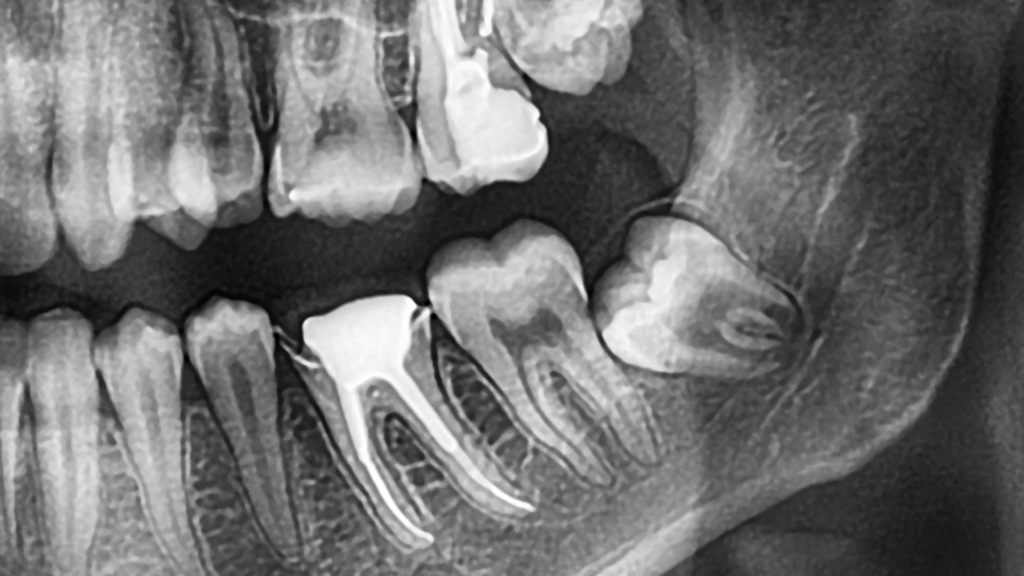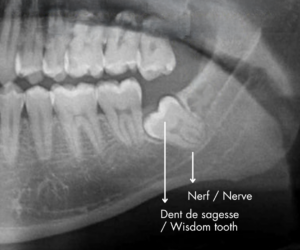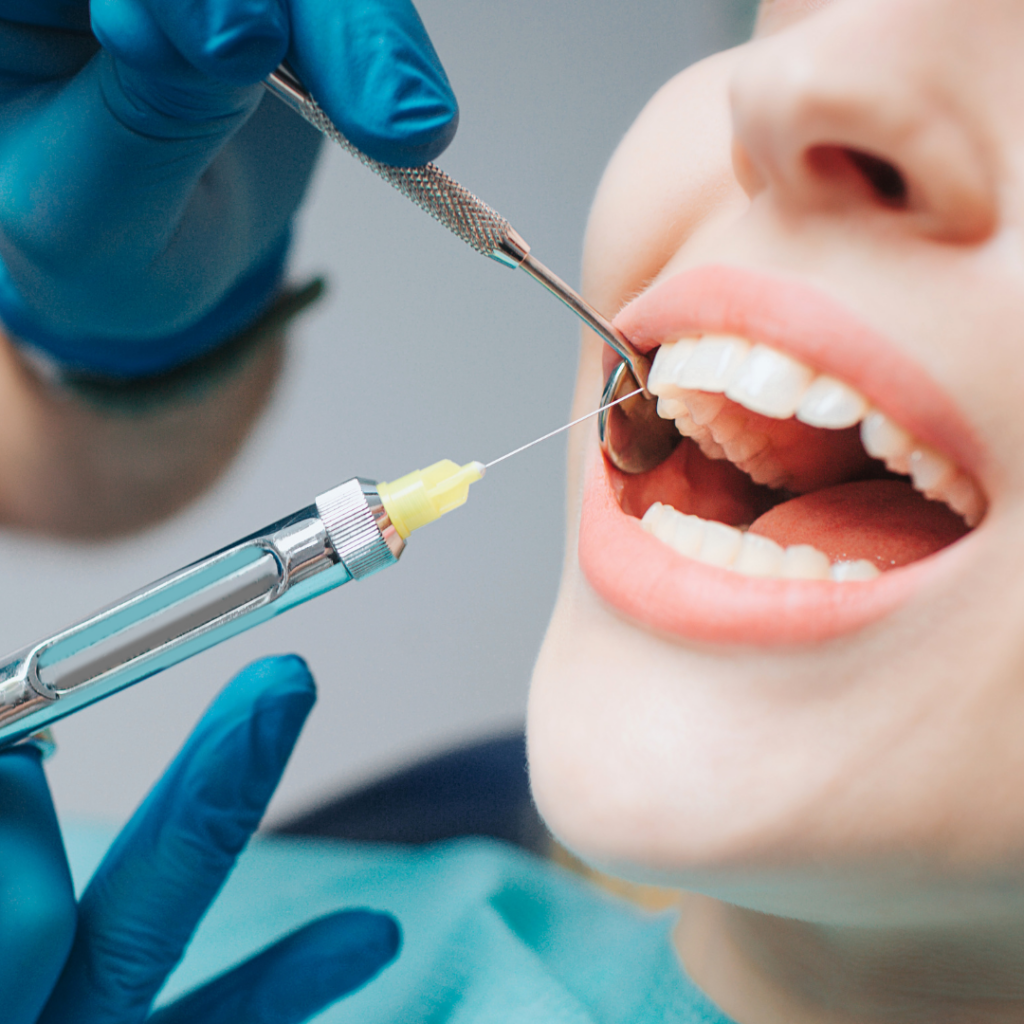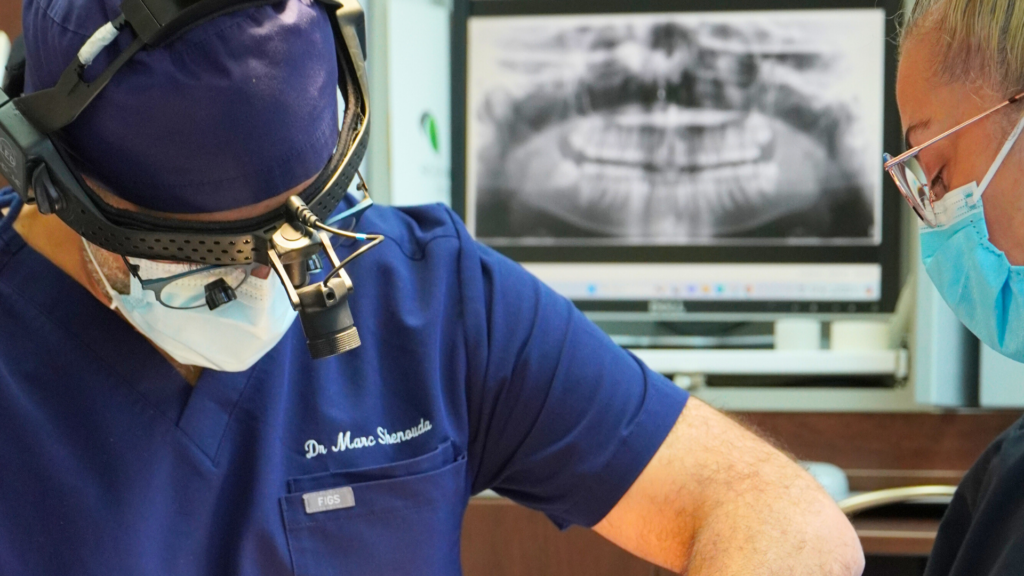Here’s what you should know about wisdom teeth removal.
Introduction
Wisdom teeth are the last molars to emerge, usually in late adolescence or early adulthood.
While they once played a key role in chewing, their presence today often causes various issues, often requiring extraction.
But why do they need to be removed? How does the procedure work? What care should be followed after extraction?
In this article, we will answer all your questions about wisdom teeth extractions.
Definition and Role of Wisdom Teeth
Wisdom teeth are the third molars located at the back of each dental arch.
Originally, they helped compensate for the rapid wear of teeth in our ancestors, whose diet was more abrasive.
However, the evolution of our diet and jaw size has often made their presence problematic. The lack of space in modern jaws frequently causes issues.
When Do They Appear?

In general, most wisdom teeth begin to emerge between the ages of 17 and 25. Their eruption varies depending on several factors, such as heredity and the available space in the jaw.
For some people, they emerge normally, but for others, they remain impacted or partially impacted, which can cause pain and problems.
Impacted wisdom teeth often require more complex surgeries.
Why Should Wisdom Teeth Be Extracted?
Lack of Space in the Jaw
Our modern jaws are often too small to accommodate wisdom teeth.
When there isn’t enough space, these teeth can grow at an angle, causing pain and infections.
Risk of Infection and Inflammation
One of the most common complications is pericoronitis, an inflammation caused by the accumulation of bacteria around a partially erupted wisdom tooth.
This can lead to pain, swelling, and, in some cases, a widespread infection requiring urgent treatment.
Impacted or Partially Erupted Teeth
An impacted tooth is a tooth that remains trapped under the gum, while a partially impacted tooth has only partially emerged.
These teeth increase the risk of cavities, infections, tooth decay, and even cysts, often requiring extraction.
Risk of Damage to Adjacent Teeth
Impacted wisdom teeth can put pressure on neighbouring teeth, causing pain, tooth shifting, and even cavities.
In some cases, they can lead to root resorption, which is the wearing down of the roots of adjacent teeth.
Formation of Cysts or Odontogenic Tumours
Although rare, cysts or tumours can develop around an impacted tooth. These growths can damage the jaw and may require more complex surgery.
Regular radiological monitoring with your dentist or surgeon helps identify these complications in time.
When Should Wisdom Teeth Be Removed?
The extraction of wisdom teeth is an important decision that should be made while considering several factors. Here are some situations where it is recommended to have wisdom teeth removed:
Pain and Discomfort: If you experience persistent pain at the back of your mouth, it may be a sign that your wisdom teeth are causing problems. The pain may result from pressure on adjacent teeth or an infection.
Recurring Infections: Frequent infections around wisdom teeth, such as pericoronitis, are a clear indication that extraction may be necessary. These infections can cause pain, swelling, and difficulty opening the mouth.
Preventing Complications: Even if your wisdom teeth are not causing immediate problems, your dentist or surgeon may recommend extraction to prevent future complications. This is especially true if X-rays show that the wisdom teeth are likely to cause issues as they continue to grow.
Ultimately, the decision to extract wisdom teeth should be made in consultation with your dentist or surgeon. They will assess your specific case and recommend the best course of action to ensure your long-term oral health.

Different Scenarios for Wisdom Teeth Extraction
Simple Extraction: When the Tooth Has Fully Emerged
If the tooth has fully emerged and does not present any complications, the extraction is quick and is usually performed under local anesthesia. Recovery generally takes a few days.
Surgical Extraction: When the Tooth Is Impacted
When the wisdom tooth is trapped under the gum, surgery is required for its extraction.
The dentist or surgeon makes an incision, then proceeds with the surgery to remove the wisdom tooth (in multiple pieces if necessary), and then closes the site with stitches.
Impacted Wisdom Tooth Near a Nerve
If a tooth is close to a nerve, the surgery is more delicate.
There is a risk of paraesthesia, which is a temporary loss of sensation, but dentists and surgeons take precautions to minimise this risk.
Extraction in Teens vs. Adults
It is recommended to remove wisdom teeth at a young age, as the roots are not yet fully formed, making the surgery easier and the recovery faster.
In adults, the roots are longer, and the bone is denser, which can make extraction more complex.
Anesthesia and Sedation Options
Local Anesthesia: A Solution for Simple Cases
Local anesthesia numbs only the affected area. It is sufficient for simple extractions and allows for a quick recovery.
Intravenous (IV) Sedation: An Option for Maximum Comfort
For anxious patients or in the case of a more complex extraction, intravenous (IV) sedation may be used. It provides complete relaxation while maintaining a certain level of awareness.
Before the Procedure: Preparing for Extraction
Initial Consultation and X-Rays
A clinical and radiological evaluation is necessary to plan the procedure. Panoramic X-rays help assess the position of the teeth, symptoms, and associated risks.
Pre-Extraction Instructions
If IV sedation is planned, it is often recommended to fast for a few hours before the procedure. Certain medications should also be avoided. For more information, consult our page on sedation options.
Questions to Ask Your Dentist or Surgeon
It is important to ask questions about the risks, recovery, and post-operative care to be well prepared.
After the Extraction: Care and Recovery
Pain and Swelling Management
Pain relievers and anti-inflammatory medications are often prescribed to control pain. Applying ice also helps reduce swelling.
Diet After Extraction
In the first few days, it is recommended to consume soft, cold foods such as purées and yogurt while avoiding hot and spicy foods.
Healing Time and Precautions
Full healing takes about two weeks, but most patients resume normal activities after a few days. It is essential to avoid smoking and alcohol, as they slow down the healing process.

Signs of Complications and When to Consult
Dry socket, a painful condition caused by the premature loss of the blood clot, is one of the most common complications. If pain persists or worsens after a few days, it is recommended to consult your surgeon.
Cost and Financing of Wisdom Teeth Extraction
Cost Estimates
The cost of wisdom teeth extraction can vary significantly depending on several factors.
The complexity of the extraction, the number of teeth being removed, and dental insurance coverage all influence the final price.
In general, the cost can range from a few hundred to one or two thousand dollars in Montreal.
Each case is unique, and even similar extractions may have different costs. For example, a simple extraction under local anesthesia will be less expensive than a complex surgical extraction requiring intravenous sedation.
To get an accurate estimate, it is essential to consult a surgeon or dentist who can assess your specific situation and provide you with a detailed quote.
Available Financing Options
To help cover the costs of wisdom teeth extraction, several financing options are available:
Dental Insurance: Most dental insurance plans cover part or all of the cost of wisdom teeth extraction. It is important to check the details of your insurance policy to understand what is covered.
Payment Plans: Some clinics offer installment payment plans, allowing patients to spread out the cost of their wisdom teeth extraction. This can make the procedure more affordable without compromising the quality of care.
Government Assistance: In some cases, government programs like the CDCP can help cover the cost of wisdom teeth removal. For patients 18 and older, CDCP eligibility begins in May 2025.
Each patient has different financial needs and circumstances. Therefore, it is essential to discuss financing options with your dentist or surgeon to find the best solution for you.
A dentist or surgeon can guide you toward the most suitable option for your situation, ensuring that you receive the necessary care without excessive financial stress.
Frequently Asked Questions (FAQ)
Is wisdom teeth extraction always painful?
Thanks to modern anesthesia techniques, pain is well controlled during the procedure. After wisdom teeth extraction, medications help manage any discomfort.
Do wisdom teeth always need to be removed?
Not necessarily. If wisdom teeth are well-positioned and do not cause any symptoms or problems, they can be kept. Regular check-ups with your dentist are recommended.
Is recovery long and difficult?
Recovery time varies from person to person, but most patients can resume their normal activities within a few days.
How long does wisdom teeth surgery take?
The surgery typically lasts between 20 and 45 minutes, depending on the complexity of the case.
Can multiple wisdom teeth be extracted in one visit?
Yes, it is common to remove all four wisdom teeth in a single procedure to avoid multiple recovery periods.
Is the procedure safe for teenagers?
Yes, the surgery is often simpler and better tolerated during adolescence.
Can I work or study after wisdom teeth extraction?
It is recommended to plan for at least one or two days of rest after the wisdom teeth extraction.
Conclusion
The extraction of wisdom teeth is a common procedure and is generally well tolerated.
It helps prevent various complications, such as infections and damage to adjacent teeth.
For any questions, it is essential to consult a surgeon or dentist to receive advice tailored to your situation.
Introduction
Wisdom teeth are the last molars to emerge, usually in late adolescence or early adulthood.
While they once played a key role in chewing, their presence today often causes various issues, often requiring extraction.
But why do they need to be removed? How does the procedure work? What care should be followed after extraction?
In this article, we will answer all your questions about wisdom teeth extractions.
Definition and Role of Wisdom Teeth
Wisdom teeth are the third molars located at the back of each dental arch.
Originally, they helped compensate for the rapid wear of teeth in our ancestors, whose diet was more abrasive.
However, the evolution of our diet and jaw size has often made their presence problematic. The lack of space in modern jaws frequently causes issues.

When Do They Appear?
In general, most wisdom teeth begin to emerge between the ages of 17 and 25. Their eruption varies depending on several factors, such as heredity and the available space in the jaw.
For some people, they emerge normally, but for others, they remain impacted or partially impacted, which can cause pain and problems.
Impacted wisdom teeth often require more complex surgeries.
Why Should Wisdom Teeth Be Extracted?
Lack of Space in the Jaw
Our modern jaws are often too small to accommodate wisdom teeth.
When there isn’t enough space, these teeth can grow at an angle, causing pain and infections.
Risk of Infection and Inflammation
One of the most common complications is pericoronitis, an inflammation caused by the accumulation of bacteria around a partially erupted wisdom tooth.
This can lead to pain, swelling, and, in some cases, a widespread infection requiring urgent treatment.
Impacted or Partially Erupted Teeth
An impacted tooth is a tooth that remains trapped under the gum, while a partially impacted tooth has only partially emerged.
These teeth increase the risk of cavities, infections, tooth decay, and even cysts, often requiring extraction.
Risk of Damage to Adjacent Teeth
Impacted wisdom teeth can put pressure on neighbouring teeth, causing pain, tooth shifting, and even cavities.
In some cases, they can lead to root resorption, which is the wearing down of the roots of adjacent teeth.
Formation of Cysts or Odontogenic Tumours
Although rare, cysts or tumours can develop around an impacted tooth. These growths can damage the jaw and may require more complex surgery.
Regular radiological monitoring with your dentist or surgeon helps identify these complications in time.
When Should Wisdom Teeth Be Removed?
The extraction of wisdom teeth is an important decision that should be made while considering several factors. Here are some situations where it is recommended to have wisdom teeth removed:
Pain and Discomfort: If you experience persistent pain at the back of your mouth, it may be a sign that your wisdom teeth are causing problems. The pain may result from pressure on adjacent teeth or an infection.
Recurring Infections: Frequent infections around wisdom teeth, such as pericoronitis, are a clear indication that extraction may be necessary. These infections can cause pain, swelling, and difficulty opening the mouth.
Preventing Complications: Even if your wisdom teeth are not causing immediate problems, your dentist or surgeon may recommend extraction to prevent future complications. This is especially true if X-rays show that the wisdom teeth are likely to cause issues as they continue to grow.
Ultimately, the decision to extract wisdom teeth should be made in consultation with your dentist or surgeon. They will assess your specific case and recommend the best course of action to ensure your long-term oral health.

Different Scenarios for Wisdom Teeth Extraction
Simple Extraction: When the Tooth Has Fully Emerged
If the tooth has fully emerged and does not present any complications, the extraction is quick and is usually performed under local anesthesia. Recovery generally takes a few days.
Surgical Extraction: When the Tooth Is Impacted
When the wisdom tooth is trapped under the gum, surgery is required for its extraction.
The dentist or surgeon makes an incision, then proceeds with the surgery to remove the wisdom tooth (in multiple pieces if necessary), and then closes the site with stitches.

Impacted Wisdom Tooth Near a Nerve
If a tooth is close to a nerve, the surgery is more delicate.
There is a risk of paraesthesia, which is a temporary loss of sensation, but dentists and surgeons take precautions to minimise this risk.
Extraction in Teens vs. Adults
It is recommended to remove wisdom teeth at a young age, as the roots are not yet fully formed, making the surgery easier and the recovery faster.
In adults, the roots are longer, and the bone is denser, which can make extraction more complex.
Anesthesia and Sedation Options
Local Anesthesia: A Solution for Simple Cases
Local anesthesia numbs only the affected area. It is sufficient for simple extractions and allows for a quick recovery.
Intravenous (IV) Sedation: An Option for Maximum Comfort
For anxious patients or in the case of a more complex extraction, intravenous (IV) sedation may be used. It provides complete relaxation while maintaining a certain level of awareness.
Before the Procedure: Preparing for Extraction
Initial Consultation and X-Rays
A clinical and radiological evaluation is necessary to plan the procedure. Panoramic X-rays help assess the position of the teeth, symptoms, and associated risks.
Pre-Extraction Instructions
If IV sedation is planned, it is often recommended to fast for a few hours before the procedure. Certain medications should also be avoided. For more information, consult our page on sedation options.
Questions to Ask Your Dentist or Surgeon
It is important to ask questions about the risks, recovery, and post-operative care to be well prepared.
After the Extraction: Care and Recovery
Pain and Swelling Management
Pain relievers and anti-inflammatory medications are often prescribed to control pain. Applying ice also helps reduce swelling.
Diet After Extraction
In the first few days, it is recommended to consume soft, cold foods such as purées and yogurt while avoiding hot and spicy foods.
Healing Time and Precautions
Full healing takes about two weeks, but most patients resume normal activities after a few days. It is essential to avoid smoking and alcohol, as they slow down the healing process.

Signs of Complications and When to Consult
Dry socket, a painful condition caused by the premature loss of the blood clot, is one of the most common complications. If pain persists or worsens after a few days, it is recommended to consult your surgeon.
Cost and Financing of Wisdom Teeth Extraction
Cost Estimates
The cost of wisdom teeth extraction can vary significantly depending on several factors.
The complexity of the extraction, the number of teeth being removed, and dental insurance coverage all influence the final price.
In general, the cost can range from a few hundred to one or two thousand dollars in Montreal.
Each case is unique, and even similar extractions may have different costs. For example, a simple extraction under local anesthesia will be less expensive than a complex surgical extraction requiring intravenous sedation.
To get an accurate estimate, it is essential to consult a surgeon or dentist who can assess your specific situation and provide you with a detailed quote.
Available Financing Options
To help cover the costs of wisdom teeth extraction, several financing options are available:
Dental Insurance: Most dental insurance plans cover part or all of the cost of wisdom teeth extraction. It is important to check the details of your insurance policy to understand what is covered.
Payment Plans: Some clinics offer installment payment plans, allowing patients to spread out the cost of their wisdom teeth extraction. This can make the procedure more affordable without compromising the quality of care.
Government Assistance: In some cases, government programs like the CDCP can help cover the cost of wisdom teeth removal. For patients 18 and older, CDCP eligibility begins in May 2025.
Each patient has different financial needs and circumstances. Therefore, it is essential to discuss financing options with your dentist or surgeon to find the best solution for you.
A dentist or surgeon can guide you toward the most suitable option for your situation, ensuring that you receive the necessary care without excessive financial stress.
Frequently Asked Questions (FAQ)
Is wisdom teeth extraction always painful?
Thanks to modern anesthesia techniques, pain is well controlled during the procedure. After wisdom teeth extraction, medications help manage any discomfort.
Do wisdom teeth always need to be removed?
Not necessarily. If wisdom teeth are well-positioned and do not cause any symptoms or problems, they can be kept. Regular check-ups with your dentist are recommended.
Is recovery long and difficult?
Recovery time varies from person to person, but most patients can resume their normal activities within a few days.
How long does wisdom teeth surgery take?
The surgery typically lasts between 20 and 45 minutes, depending on the complexity of the case.
Can multiple wisdom teeth be extracted in one visit?
Yes, it is common to remove all four wisdom teeth in a single procedure to avoid multiple recovery periods.
Is the procedure safe for teenagers?
Yes, the surgery is often simpler and better tolerated during adolescence.
Can I work or study after wisdom teeth extraction?
It is recommended to plan for at least one or two days of rest after the wisdom teeth extraction.
Conclusion
The extraction of wisdom teeth is a common procedure and is generally well tolerated.
It helps prevent various complications, such as infections and damage to adjacent teeth.
For any questions, it is essential to consult a surgeon or dentist to receive advice tailored to your situation.
Introduction
Wisdom teeth are the last molars to emerge, usually in late adolescence or early adulthood.
While they once played a key role in chewing, their presence today often causes various issues, often requiring extraction.
But why do they need to be removed? How does the procedure work? What care should be followed after extraction?
In this article, we will answer all your questions about wisdom teeth extractions.
Definition and Role of Wisdom Teeth
Wisdom teeth are the third molars located at the back of each dental arch.
Originally, they helped compensate for the rapid wear of teeth in our ancestors, whose diet was more abrasive.
However, the evolution of our diet and jaw size has often made their presence problematic. The lack of space in modern jaws frequently causes issues.
When Do They Appear?

In general, most wisdom teeth begin to emerge between the ages of 17 and 25. Their eruption varies depending on several factors, such as heredity and the available space in the jaw.
For some people, they emerge normally, but for others, they remain impacted or partially impacted, which can cause pain and problems.
Impacted wisdom teeth often require more complex surgeries.
Why Should Wisdom Teeth Be Extracted?
Lack of Space in the Jaw
Our modern jaws are often too small to accommodate wisdom teeth.
When there isn’t enough space, these teeth can grow at an angle, causing pain and infections.
Risk of Infection and Inflammation
One of the most common complications is pericoronitis, an inflammation caused by the accumulation of bacteria around a partially erupted wisdom tooth.
This can lead to pain, swelling, and, in some cases, a widespread infection requiring urgent treatment.
Impacted or Partially Erupted Teeth
An impacted tooth is a tooth that remains trapped under the gum, while a partially impacted tooth has only partially emerged.
These teeth increase the risk of cavities, infections, tooth decay, and even cysts, often requiring extraction.
Risk of Damage to Adjacent Teeth
Impacted wisdom teeth can put pressure on neighbouring teeth, causing pain, tooth shifting, and even cavities.
In some cases, they can lead to root resorption, which is the wearing down of the roots of adjacent teeth.
Formation of Cysts or Odontogenic Tumours
Although rare, cysts or tumours can develop around an impacted tooth. These growths can damage the jaw and may require more complex surgery.
Regular radiological monitoring with your dentist or surgeon helps identify these complications in time.
When Should Wisdom Teeth Be Removed?
The extraction of wisdom teeth is an important decision that should be made while considering several factors. Here are some situations where it is recommended to have wisdom teeth removed:
Pain and Discomfort: If you experience persistent pain at the back of your mouth, it may be a sign that your wisdom teeth are causing problems. The pain may result from pressure on adjacent teeth or an infection.
Recurring Infections: Frequent infections around wisdom teeth, such as pericoronitis, are a clear indication that extraction may be necessary. These infections can cause pain, swelling, and difficulty opening the mouth.
Preventing Complications: Even if your wisdom teeth are not causing immediate problems, your dentist or surgeon may recommend extraction to prevent future complications. This is especially true if X-rays show that the wisdom teeth are likely to cause issues as they continue to grow.
Ultimately, the decision to extract wisdom teeth should be made in consultation with your dentist or surgeon. They will assess your specific case and recommend the best course of action to ensure your long-term oral health.

Different Scenarios for Wisdom Teeth Extraction
Simple Extraction: When the Tooth Has Fully Emerged
If the tooth has fully emerged and does not present any complications, the extraction is quick and is usually performed under local anesthesia. Recovery generally takes a few days.
Surgical Extraction: When the Tooth Is Impacted
When the wisdom tooth is trapped under the gum, surgery is required for its extraction.
The dentist or surgeon makes an incision, then proceeds with the surgery to remove the wisdom tooth (in multiple pieces if necessary), and then closes the site with stitches.
Impacted Wisdom Tooth Near a Nerve
If a tooth is close to a nerve, the surgery is more delicate.
There is a risk of paraesthesia, which is a temporary loss of sensation, but dentists and surgeons take precautions to minimise this risk.
Extraction in Teens vs. Adults
It is recommended to remove wisdom teeth at a young age, as the roots are not yet fully formed, making the surgery easier and the recovery faster.
In adults, the roots are longer, and the bone is denser, which can make extraction more complex.
Anesthesia and Sedation Options
Local Anesthesia: A Solution for Simple Cases
Local anesthesia numbs only the affected area. It is sufficient for simple extractions and allows for a quick recovery.
Intravenous (IV) Sedation: An Option for Maximum Comfort
For anxious patients or in the case of a more complex extraction, intravenous (IV) sedation may be used. It provides complete relaxation while maintaining a certain level of awareness.
Before the Procedure: Preparing for Extraction
Initial Consultation and X-Rays
A clinical and radiological evaluation is necessary to plan the procedure. Panoramic X-rays help assess the position of the teeth, symptoms, and associated risks.
Pre-Extraction Instructions
If IV sedation is planned, it is often recommended to fast for a few hours before the procedure. Certain medications should also be avoided. For more information, consult our page on sedation options.
Questions to Ask Your Dentist or Surgeon
It is important to ask questions about the risks, recovery, and post-operative care to be well prepared.
After the Extraction: Care and Recovery
Pain and Swelling Management
Pain relievers and anti-inflammatory medications are often prescribed to control pain. Applying ice also helps reduce swelling.
Diet After Extraction
In the first few days, it is recommended to consume soft, cold foods such as purées and yogurt while avoiding hot and spicy foods.
Healing Time and Precautions
Full healing takes about two weeks, but most patients resume normal activities after a few days. It is essential to avoid smoking and alcohol, as they slow down the healing process.

Signs of Complications and When to Consult
Dry socket, a painful condition caused by the premature loss of the blood clot, is one of the most common complications. If pain persists or worsens after a few days, it is recommended to consult your surgeon.
Cost and Financing of Wisdom Teeth Extraction
Cost Estimates
The cost of wisdom teeth extraction can vary significantly depending on several factors.
The complexity of the extraction, the number of teeth being removed, and dental insurance coverage all influence the final price.
In general, the cost can range from a few hundred to one or two thousand dollars in Montreal.
Each case is unique, and even similar extractions may have different costs. For example, a simple extraction under local anesthesia will be less expensive than a complex surgical extraction requiring intravenous sedation.
To get an accurate estimate, it is essential to consult a surgeon or dentist who can assess your specific situation and provide you with a detailed quote.
Available Financing Options
To help cover the costs of wisdom teeth extraction, several financing options are available:
Dental Insurance: Most dental insurance plans cover part or all of the cost of wisdom teeth extraction. It is important to check the details of your insurance policy to understand what is covered.
Payment Plans: Some clinics offer installment payment plans, allowing patients to spread out the cost of their wisdom teeth extraction. This can make the procedure more affordable without compromising the quality of care.
Government Assistance: In certain cases, government funding programs, such as the CDCP, may be available to help patients cover the costs of wisdom teeth extraction.
Each patient has different financial needs and circumstances. Therefore, it is essential to discuss financing options with your dentist or surgeon to find the best solution for you.
A dentist or surgeon can guide you toward the most suitable option for your situation, ensuring that you receive the necessary care without excessive financial stress.
Frequently Asked Questions (FAQ)
Is wisdom teeth extraction always painful?
Thanks to modern anesthesia techniques, pain is well controlled during the procedure. After wisdom teeth extraction, medications help manage any discomfort.
Do wisdom teeth always need to be removed?
Not necessarily. If wisdom teeth are well-positioned and do not cause any symptoms or problems, they can be kept. Regular check-ups with your dentist are recommended.
Is recovery long and difficult?
Recovery time varies from person to person, but most patients can resume their normal activities within a few days.
How long does wisdom teeth surgery take?
The surgery typically lasts between 20 and 45 minutes, depending on the complexity of the case.
Can multiple wisdom teeth be extracted in one visit?
Yes, it is common to remove all four wisdom teeth in a single procedure to avoid multiple recovery periods.
Is the procedure safe for teenagers?
Yes, the surgery is often simpler and better tolerated during adolescence.
Can I work or study after wisdom teeth extraction?
It is recommended to plan for at least one or two days of rest after the wisdom teeth extraction.
Conclusion
The extraction of wisdom teeth is a common procedure and is generally well tolerated.
It helps prevent various complications, such as infections and damage to adjacent teeth.
For any questions, it is essential to consult a surgeon or dentist to receive advice tailored to your situation.










